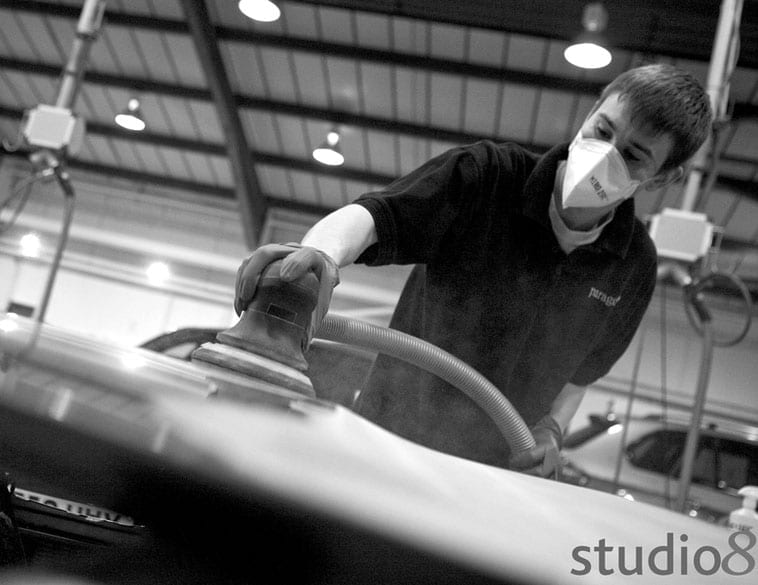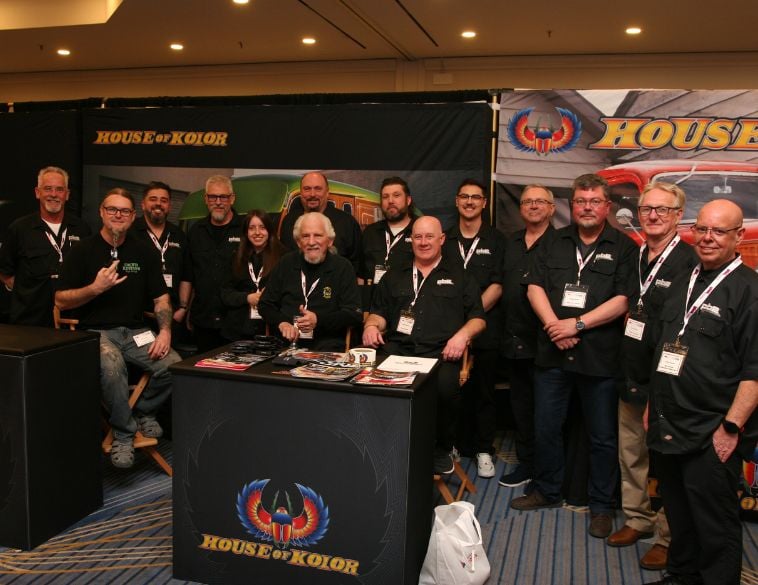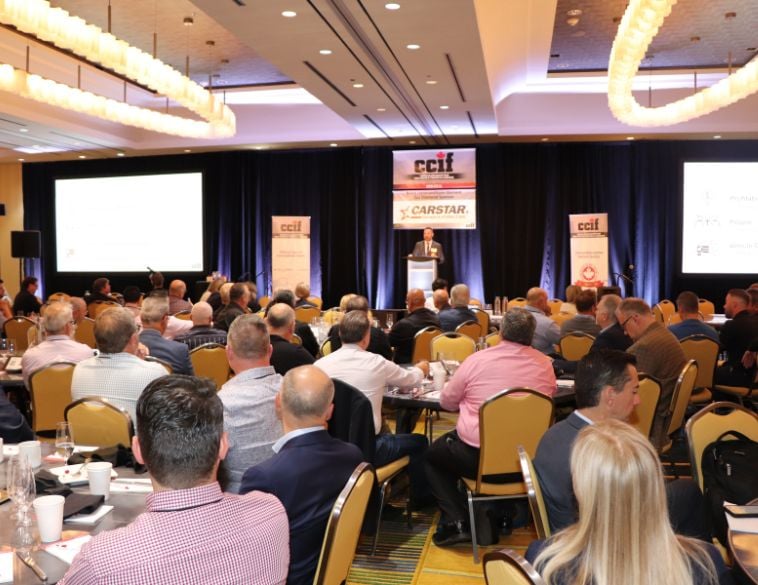The current pandemic has changed the way collision repairers operate, but some are discovering new benefits and options as a result of lockdown measures.
Several months ago, few could have predicted the impact of the novel coronavirus and the resulting COVID-19 pandemic. Almost the entire world has been impacted and Canada is no exception.
In order to contain the spread of the virus; provincial governments have imposed lockdown measures—forcing many businesses to temporarily close or those that were deemed essential to remain open—to work with new protocols designed to protect both their staff and their customers.
Across the country, we’ve seen COVID-19 impact collision repairers at different stages and at different levels. In a special, two-part series, Collision Management has contacted operators in different parts of the country asking them about how the virus has changed the way they operate their business and perhaps some of the new procedures that could be continued once the lockdowns begin to lift.
Specific precautions
At CARSTAR Thunder Bay in Northern Ontario, operator Daniel Trevisanutto says that at his facility, the COVID-19 pandemic has changed the way the shop interacts with its customers. Even though the area hasn’t reported a high number of cases, everybody is trying their best to stay safe which for Trevisanutto and his team has meant taking specific precautions. “Whereas before, when a vehicle comes into the shop, we would scan the VIN, bring it inside, wash it and start the teardown process, we are now avoiding the vehicle as much as possible, at least until it has been sanitized,” he says. This applies both to vehicles that are drivable and those cars and trucks that have received more severe damage and can’t be driven into the shop under their own power.
All the high touch points of the vehicle, including door handles, the steering wheel, seat belts and centre stack controls are all sanitized. We also now have to think about how we wash the vehicle and how we move it around once it is in the shop for repairs.
— Daniel Trevisanutto, Operator, CARSTAR Thunder Bay
Disposable steering wheel and seat covers are mandatory as are gloves and where essential, good fitting N95 face masks. Trevisanutto notes that in his shop, the way the workstations are laid out means that technicians are able to maintain social distancing requirements of 2 m (6-ft) apart. “Even in the front office, which is fairly small, we are constantly aware of how we handle our phones and computers and make sure we are sanitizing and washing our hands as often as possible.”
With stay at home orders in force, Trevisanutto says he’s seen business tail off noticeably and has placed staff on rotation. “With fewer vehicles on the road and fewer claims being processed, there is less work, so we have had to make some layoffs,” he says but at the same time, CARSTAR Thunder Bay is doing everything it can to repair those vehicles that come in and prioritize work orders for essential employees on the frontline such as health care professionals, grocery store employees and those providing delivery services.
Trevisanutto says that some practices, such as photo-based estimating have grown significantly during COVID-19—a trend that will likely continue once lockdowns are lifted. “We were already seeing it more and more before COVID-19 with more insurance companies adopting it,” he says.
Although it is difficult to predict at this point, there is also a chance that once restrictions are eased, there could be pent up demand for collision repairs as a number of claims have been deferred. Regardless of what happens, Trevisanutto says that it’s important to maintain and strengthen customer relationships. “Building confidence with your customers is critical,” he says. “It’s important that we are able to share with them how we are going to repair the vehicle and get them back on the road. Building that trust and being open about how we do things is still the best way to do business.”
New practices
At CSN Champlain, in Dieppe, N.B., office manager Mandie Steen, says that the facility has embraced a number of new operating practices as a result of COVID-19. While the shop had embraced mobile estimating before the pandemic, now all estimates are touchless, with photo-based and curbside estimate procedures in place to maintain social distancing protocols.
We have limited all access to our building,” says Steen. “When speaking to our clients we ask them whether they have travelled, if they are feeling ill and if so, request that they come at another time.” She also notes that when a customer is visiting the shop, “they will call us to announce their arrival and from there we follow a strict process to receive their vehicle outside of the building.”
All vehicles slated for repair are left in the parking lot and extra precautions are taken to ensure they are sanitized before being brought into the shop for the pre-intake wash process. Once repairs have been completed, each vehicle is disinfected once again before curbside delivery is made to the customer. “To minimize any potential risk, we are now accepting touchless payments as well,” says Steen.
One trend that has been on the uptick since the impact of the COVID-19 lockdown has been mechanical repairs. “We have been seeing a slight increase in both mechanical repairs for customer vehicles and also for fleets,” says Steen. She notes that in this era of reduced economic activity, now is the time for fleet businesses to be proactive in vehicle maintenance if they can, since in many cases these vehicles are not running at their usual capacity.
Like many shops, CSN Champlain has also taken the opportunity to invest in the business, such as improving internal processes, complete special projects and invest in training–all strategies designed to ensure that once things start to return to normal, the business well be even better prepared for the future.
Different environment
In Alberta, Tim Robertson, who owns Simplicity Car Care Edmonton South, also says he’s seen a noticeable drop in business due to the lockdowns in effect in the province. “There have been some shops in our area that have closed down completely,” he says. For those that continue to operate, like Simplicity Car Care Edmonton South, the COVID-19 situation has given Robertson and his team the chance to re-evaluate and take steps to further improve processes and ways to do business.
Safety and customer satisfaction have always been of paramount importance for Robertson, but the pandemic has resulted in new protocols. “Customers are still coming to the shop for estimates,” he says “but now we have social distancing rules, so we sanitize the vehicle, and the office area for each customer visit and place the customer’s keys in a Ziploc bag.”
The vehicle sanitization process includes all high touch areas which are cleaned as soon as the customer leaves and before the vehicle enters the shop, while the reception area permits just one customer at a time and is cleaned before each customer enters and after they leave.
Like many collision repairers dealing with lower volumes, Robertson has placed staff on rotation but the shop has also introduced a shift process, so they come in for select tasks and then leave in order to minimize contact.
Currently, it is just myself in the front office with a detailer, a body man, our prep staff and our painter in the back.
— Tim Robertson, owner, Simplicity Car Care Edmonton South
Robertson says that the process works by having the detailer wash the vehicle and then the body technician dismantle it. Once they have done their jobs they will leave and the prep staff and painter will come in. The body technician then comes back to re-assemble the vehicle before the quality checks and scans are done and the vehicle is released.
Robertson also notes that if customers are working on the front-line like health care professionals and other essential services, repairs to their vehicle receive automatic priority and he is very grateful for not only continuing to serve the people of Edmonton with their vehicle collision repair needs but also having a committed team that continue to make customer service and safety a priority.
Looking to the future, Robertson says that some of the protocols, such as digital estimating and the Ziploc procedure for keys are likely to remain once the lockdown restrictions start to ease and also says that customer vehicle pick-up and delivery are strategies as well as on-site estimate visits to the customer’s home or place of business are some things the shop is considering. “Ultimately it will depend on how long this situation lasts and what people’s expectations are in the future,” he says.
Quick process
At Fix Auto Barrie North in Ontario, Business Development and Customer Experience Manager Kim Roberts says that prior to the COVID-19 pandemic the shop had experienced three of its busiest years on record. “We were experience very high repair volumes and hiring new staff to help us keep up with demand.”
Then on March 17, the Ontario government declared a state of emergency and put in a province wide lockdown to help contain community spread of COVID-19. At that time, Fix Auto Barrie North immediately implemented safety protocols, including limiting office interactions with customers and moving to a mobile estimating service.
At the time, for those customers that perhaps weren’t entirely comfortable with the new process, “ we have a lot of older clientele,” says Roberts, shop staff would greet customers in their vehicle and ask them questions to gain an idea of their comfort level in terms of getting their vehicle repaired. Now, several weeks down the line, the virtual estimating process has become a well-oiled machine.”
Roberts says she’s very thankful that the decision was made to implement new COVID-19 protocols as quickly as possible. She also notes that aside from a few staff members who said they were uncomfortable working in the current environment, everybody is still working and business has remained steady. “Perhaps we are a bit of anomaly,” she says. “We still have three technicians working full-time and we are seeing new claims every day.”
With Barrie being the location of a major regional health centre (RVH), she also notes that essential workers receive priority service at Fix Auto Barrie North. A recent example was local nurse who needed her non-drivable vehicle repaired and the shop took on the project and got working on it as quickly as possible.
Local partners have also stepped up to help, including the local Enterprise Rent-a-car operation that can place cars at Fix Auto Barrie North so customers can quickly get into them if needed.
Roberts says that since the pandemic hit, everybody working at the shop has had a chance to really boost their level of communication and the situation has also allowed not only the introduction of new practices but also a change in business culture. “This has been a great learning experience for us,” she says. “We are incredibly proud of our team and how we have pulled together and grown. We are working so well together now.”



